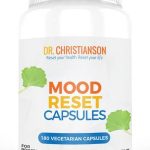What Do We Know Now About Hormone Replacement Therapy?
As a quick recap, cardiovascular disease is worse for those on hormone replacement therapy (heart attack, congestive heart failure, stroke, and pulmonary embolism). At the same time, breast cancer risks are also higher. These are all clear risks.
For some women, these risks are more identifiable than others. They may have a strong family history, genetic clotting issues, higher lipids, higher blood pressure, all of these things can lead to more potential issues and higher potential risk.
The same is true for breast cancer. Due to things like body weight, family history, and other considerations like alcohol intake. These remain relevant factors.
In terms of numbers, this really adds up to a few cases per 1,000 in younger women. So, it’s not a guarantee that if you take hormones you will get cancer. Far from it. It is also a reasonable consideration for younger women with low risks and bad symptoms.
But, when the risks are higher, it is something women should be informed of and should be taken into account.
The Issue with Bone Loss
I want to take a moment to talk about something important: bone loss. Estrogen does help bone health, and it was shown that younger women in the WHI study found that younger women had better bone health when they were on hormone replacement therapy.
There’s a couple of wrinkles here, though. One of them is that the duration of benefit is thought to be no longer than the duration of hormone usage.
That means that if the women were to have stayed on hormones longer, into their ages in which bone risk is apparent, the concern is that the cumulative years would have made the overall side effects greater.
And, as it was, there was no net benefit for mortality. If there was a way in which benefits to bone health outweigh the detriments of cancer or heart disease, it didn’t happen. And, there is little reason to believe they would have happened if they had gone on longer.
Ultimately, hormones should not be considered a good strategy for maintaining bone health. A lot of other things are, but hormones are not due to their lack of net, overall benefit.
The Issue with Vaginal Symptoms
There are also vaginal symptoms that women have, including:
- Atrophic vaginitis
- Dryness
- Pain during intercourse
Systematic, whole-body hormone replacement therapy does not consistently help with vaginal symptoms. But, there are topical therapies that can help.
They work locally, they act on the vaginal lining, and they do not spread hormones throughout the remainder of the body.
The Issue with Skin Health
While this was not looked at in the WHI study, it is known that systemic hormone therapy can improve skin health. There can be less fine lines, less wrinkling and healthier collagen levels.
Thankfully, there are versions of estrogen that are safe, are non-prescription, and work locally and not throughout the body. They can maintain skin health without the risks of HRT.










